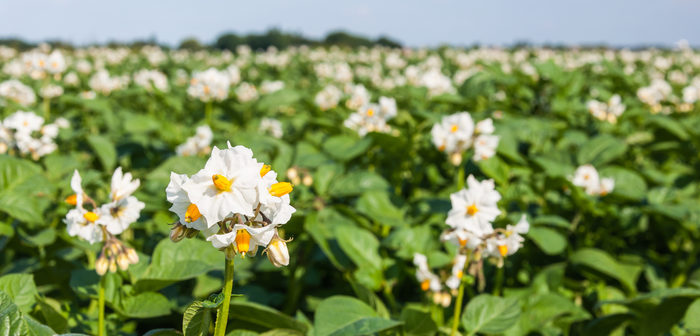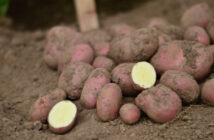Recent European Union-funded trials indicate that a biostimulant product, code-named ERL-32, can successfully prevent potato blight infection by stimulating plants’ natural defences.
Simon Fox, director and founder of Emerald Research, explains the trial is being carried out as part of the NASPA (Interreg Atlantic Funded) project. Results have shown that a biostimulant, code-named ERL-32, can help reduce growers’ reliance on chemical crop protection by inducing resistance to the disease.
The trials, carried out on the experimental farm at Bangor University, set out to evaluate biological controls for blight infection against the current industry standard crop protection programmes.
“The potato crops in the trial were given a routine fertiliser mix, based on a standard soil analysis, before being treated with regular applications of one of the chosen trial compounds,” he says.
“ERL-32 and a number of other candidate biostimulants were tested against a fungicide standard, mancozeb, along with a control plot that had only water applied.
“We found that ERL-32 gave the best induced resistance to the common blight strain Pink 6 A2, with the crop showing less than one percent blight infection, whereas mancozeb showed 10% and untreated close to 100% infection,” says Simon.
Further to this, Simon explains that if the product was applied prior to potato late blight infection, it allowed the plant to resist infection even at high levels of risk, as indicated by the Hutton Criteria.
He notes that the outcome of this trial highlights the many benefits that a growing range of biostimulants can offer potato growers.
“Firstly, there are no spray or harvest intervals with these compounds, and it’s safe for both growers and the environment. They also offer a wide range of benefits to the crop itself in terms of inducing a more robust, vigorous and healthy plant.
“In turn, this means the crop will be growing to its maximum ability and that it’s able to achieve the potential that growers are seeking,” says Simon.
Such positive results are good news to growers who continue to face evermore virulent strains of potato blight. And so, while blight continues to pose a challenge to the potato sector, growers can be confident that alternative solutions are being developed to ensure they can produce high-quality, marketable yields.




